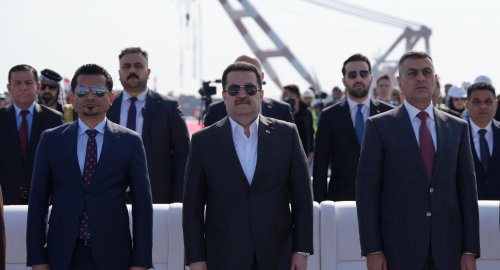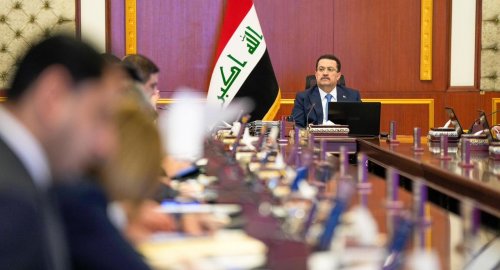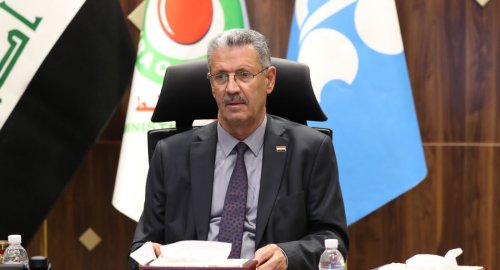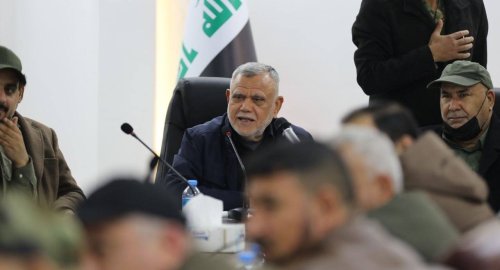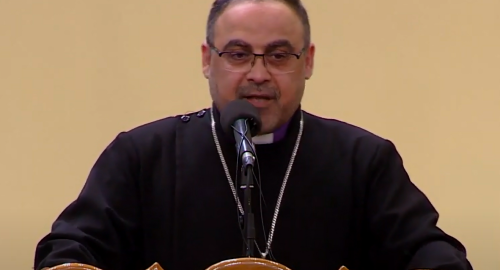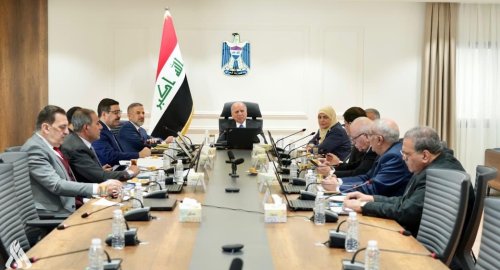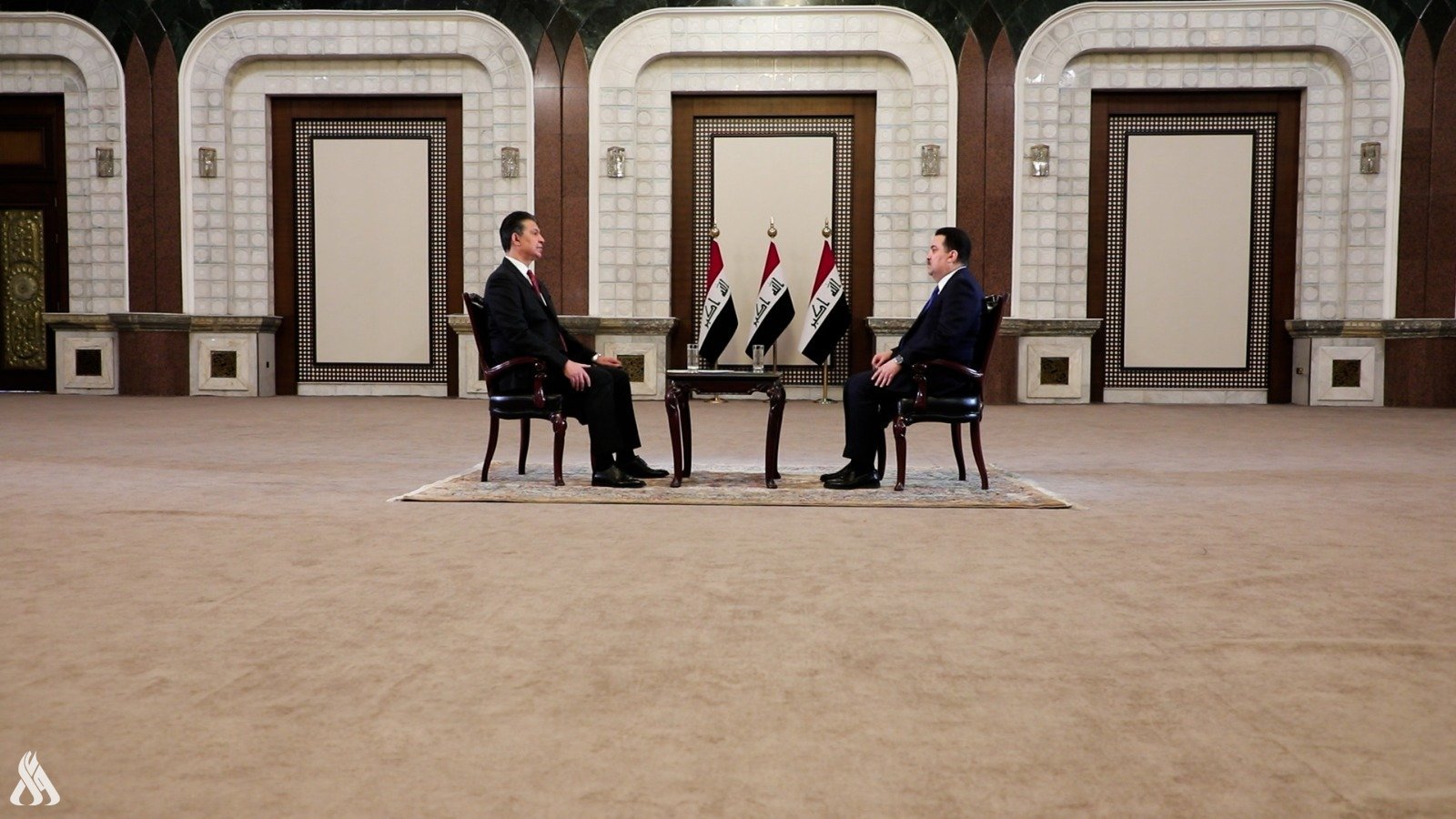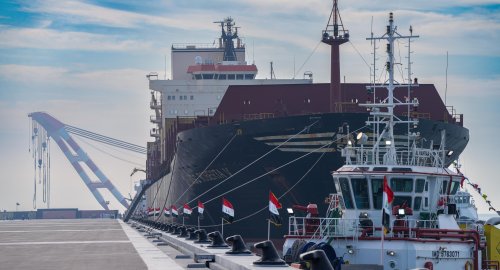
Five docks open at Iraqi ports, kicking off phase of large ship docking

- 7-11-2024, 19:54
Baghdad - INA
With the receipt of the five berths of Al-Faw Port from the implementing Korean company, Iraq has entered the era of a state whose ports overlooking the Gulf officially depend on receiving large ships.
Event Prime Minister Mohammed Shia al-Sudani, who sponsored today's handover ceremony for the project, which the government described as the "People's Project", stressed that "it is of great importance due to its connection to the Development Road Project, which will link, starting from the Grand Faw Port, the economies of most countries in the region, and will be an outlet for achieving economic integration, noting that Iraq is still a fundamental pillar in the global economy, and a historical part and passage of the most important international exchange routes.
During the opening, al-Sudani pointed out the importance of the five berths in the Grand Faw Port; as they represent the backbone of the port project in its first phase, which will be completed next year according to the previous timetables, and huge commercial ships with large drafts have already docked on the port's berths.
Increased revenues
Member of the Parliamentary Finance Committee Mustafa al-Karaawi said in a statement to the Iraqi News Agency (INA): "Iraq depends on oil for 90% of its resources, and there is serious government work and direction to increase non-oil revenues," indicating that "the importance of the ports lies in the fact that they represent two paths for revenues: the first is oil through the export of oil and the reception of oil tankers, and the other through the entry of goods."
He added, "The opening of the five berths and the completion of the investment in Faw Port will contribute to supporting the development path, in addition to being part of the Silk Road," indicating that "Iraq is located in a geographical area that makes it a link between major countries, China and Europe."
Development path
In turn, the Prime Minister's Advisor for Transport Affairs, Nasser Al-Asadi, said in a statement to the Iraqi News Agency (INA): "The opening of the first berths of the port will be followed by the opening of the remaining berths within the specified timeframes," noting that "the economic importance of these berths lies in opening the door for Iraq to make the Faw Port project a reality that transforms it into a diversified economy through the revenues of Faw Port."
He explained that "Faw Port has become a reality and will be the main artery of the development path, in addition to providing great job opportunities."
He stressed that "ships have begun experimental docking at the five berths, all of whose facilities have been opened," indicating that "there are other parts of the port that are close to completion."
Giant ships
Economic analyst Ahmed Abdul Rabbo confirmed in a statement to the Iraqi News Agency (INA), that "Al-Faw Port differs from other ports in Iraq as it is directly connected to the Gulf, while other ports are in sea channels, and the opening of the five docks means the inauguration of the stage of Iraq receiving giant and large ships that were previously difficult to enter."
He explained that "the other advantage of Al-Faw Port is the depth of its waters, which differs from other ports, and this will contribute to the process of embarking on the path of development in an actual way by allowing ships of various sizes to dock."
He continued, "The opening of the docks put an end to the talk of sceptics about the completion of Al-Faw Port and the beginning of the countdown to complete the Grand Al-Faw Port project."
Attracting international shipping companies
Economic expert Ahmed Saddam stated in a statement to the Iraqi News Agency (INA), that "the expected economic importance of the Faw Port after completing other equipment such as cranes, warehouses, management systems and their accessories lies in encouraging the entry of large ships that require a large draft, in addition to relieving the burden on Um Qasr Port."
He continued, "This means that the port of Faw will contribute to attracting new shipping companies in the future that can raise the level of port revenues."
He pointed out that "other positives for the Iraqi economy are represented in providing employment opportunities within the port as well as opening the door to internal land transport companies that will deal with the port in the future."
He explained that "if we take into consideration the activation of the law of Basra as the economic capital of Iraq, the port of Faw will be the main pillar for attracting foreign direct investment companies after providing the appropriate facilities for that, and this will naturally be reflected in the Iraqi economy by raising the level of non-oil investments and their revenues."
US Central Command: We killed ISIS terrorist leader Abu Yusuf in Syria
- International
- 24/12/20
Liverpool compete with Real Madrid to sign Olympique Lyonnais star
- Security
- 24/12/19
Iraq assumes presidency of Arab Investment Company’s Executive Board
- Economy
- 24/12/17
Hackers exploiting Microsoft Teams to gain remote access to user’s system
- Multimedia
- 24/12/17
